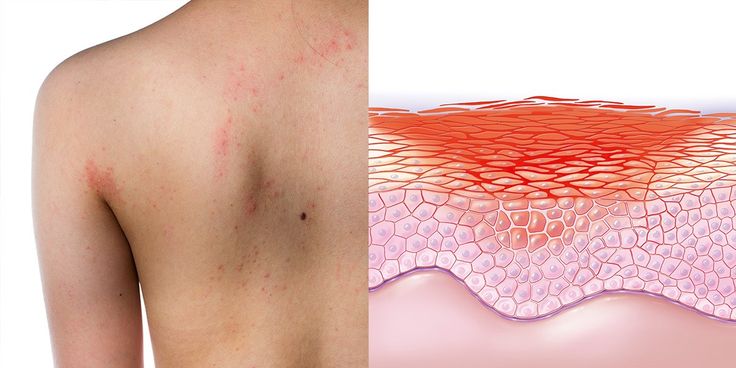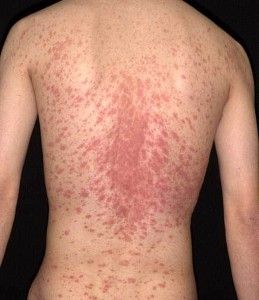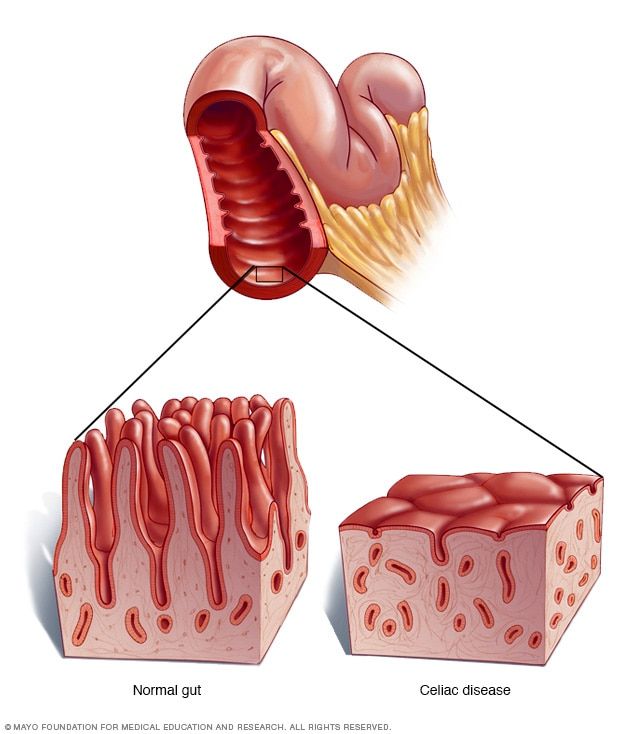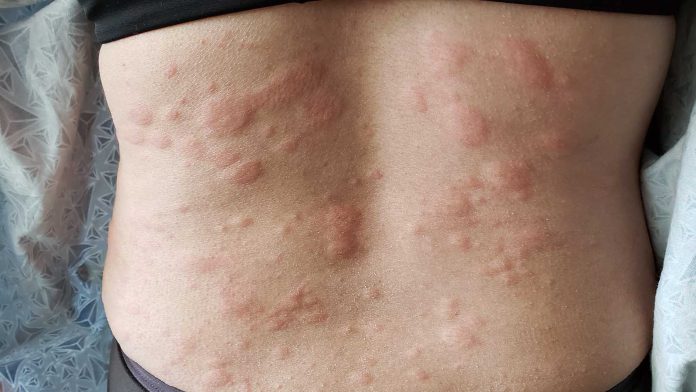kevindailystory.com – A 51-year-old woman presents to the doctor complaining of itchy bumps on her back. She does not know where or when the rash started. She has never had anything similar. Other than her allergies, she has no known health problems. She does not take any medications or have allergies to foods or other substances. She has not worn any new clothes in the last week. However, she has been wearing tight, uncomfortable clothing for the past three days.
Causes of itchy bumps on the back

There are many different causes of itchy bumps on the back. It might be the irritated skin of an individual with Celiac disease. This condition can cause red, itchy, or blistering bumps that persist for a long period of time. Dermatitis herpetiformis is another cause of itchy bumps on the back. This skin condition can be embarrassing, especially if they cover the whole body.
Acne is a common cause of red bumps on the back. Despite being common, the condition is very difficult to treat and can even cause skin discoloration. For this reason, you must consult a dermatologist. A doctor can prescribe medication that treats the symptoms and prevents recurrence of the condition. Some of the most effective treatments for this condition are available over-the-counter or online.
How to treat red and itchy bumps on back
It is important to see a dermatologist for the condition if you have red bumps on the back. You may have folliculitis, which affects the intestine and affects the absorption of nutrients from foods. Regardless of the cause, a dermatologist can prescribe a treatment plan. Itchy Bumps On Back – A Symptom of a More Serious Disease? a Look

There are several ways to treat red, itchy bumps on the back. The first option is to treat the underlying condition. A good home treatment for dermatitis herpetiformis involves a gentle soap for the affected area. The most effective treatment for this condition is a gluten-free diet. The best thing to do is to consult a dermatologist. If your bumps do not respond to treatment, they may be an indication of a more serious problem.
Itchy Bumps On Back are an indication of a broader problem. In some cases, they are symptoms of an underlying disease. In some cases, the bumps may be harmless and go away on their own. Nevertheless, if they are red, it is better to consult a dermatologist. If they are not a sign of any other condition, they should be treated as soon as possible. A dermatologist will help you treat the condition and make it go away.
Itchy bumps on the back can be an early sign of eczema

The treatment for red itchy bumps on the back is different depending on the specific cause. If they are caused by an acne breakout, the underlying condition should be treated first. A doctor can prescribe strong steriods to reduce the itching. In other cases, itchy bumps on the back could be an early sign of an underlying condition, such as eczema. The dr will prescribe a topical medicine to help alleviate the discomfort and pain.
In the case of folliculitis, the treatment for red itchy bumps on the back will depend on the type of ailment. Atopic dermatitis can be treated with topical antibiotic ointments. While itchy bumps on the back are often harmless, they are still a sign of an underlying medical condition. You should consult a doctor if you suspect an itchy bump on the back.
Celiac disease is the cause of most people experiencing lumps on the back

The treatment for red itchy bumps on the back depends on the underlying condition. In most cases, itchy bumps on the back can be caused by Celiac disease, which damages the intestine and interferes with the absorption of nutrients. Other conditions, such as dermatitis herpetiformis, are characterized by itchy bumps on the back that persist for a long time.
There are several possible causes of red itchy bumps on the back. Itchy bumps on the back are most commonly caused by AKN, a genetic disease of the intestine. This disorder damages the intestine, which makes it hard to digest food. If the symptoms occur repeatedly, the condition can be caused by a variety of conditions. People with AKN have an inherited tendency to develop dry, itchy bumps on the skin, which may lead to a rash.






